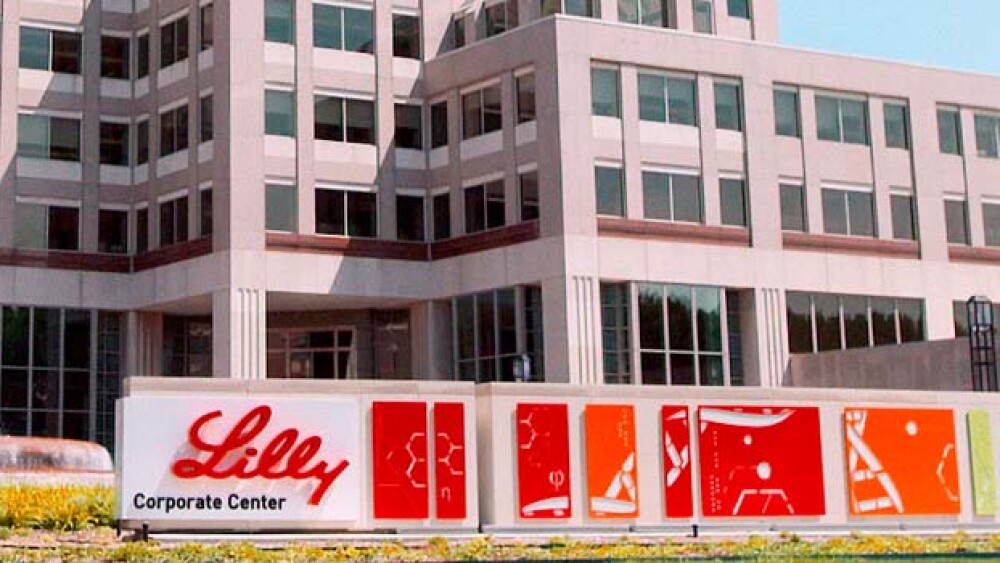For the second time in less than one week, Dicerna Pharmaceutical has forged a licensing agreement for its GalXC RNAi technology platform. This time Dicerna and Eli Lilly have struck an agreement to use the platform for up to 10 cardio-metabolic, neurodegeneration and pain targets.
For the second time in less than one week, Cambridge, Mass.-based Dicerna Pharmaceutical has forged a licensing agreement for its GalXC RNAi technology platform. This time Dicerna and Eli Lilly have struck an agreement to use the platform for up to 10 cardio-metabolic, neurodegeneration and pain targets.
Eli Lilly and Dicerna plan to use the technology platform to take RNAi candidates into the clinic in order to generate next-generation oligonucleotide therapeutic agents, the companies said in an announcement this morning.
Under terms of the deal with Eli Lilly, the Indianapolis-based company made an upfront payment of $100 million, as well as an equity investment of another $100 million. Dicerna will be eligible to receive up to approximately $350 million per target in development and commercialization milestones. Additionally, the company can earn tiered royalties ranging from the mid-single to low-double digits on product sales. Dicerna will work exclusively with Lilly in the neurodegeneration and pain fields, and on select targets in cardio-metabolic diseases.
Following the announcement of the deal, shares of Dicerna have skyrocketed in premarket trading. The stock is up more than 36 percent to $17.72 per share, more than $4 above Friday’s closing price of $13.
Daniel Skovronsky, Lilly’s chief scientific officer, said the dive into RNAi with Dicerna is an opportunity to “go to where breaking science meets unmet medical needs.” Skovronsky said Eli Lilly will use the Dicerna technology to study targets that have proven to be “technically challenging.” RNA interference (RNAi) is a treatment method that harnesses certain RNA molecules to inhibit the expression of disease-causing genes by destroying the messenger RNAs (mRNAs) of those genes. The technology has the potential to silence some of the most well-validated, but inaccessible drug targets.
“RNAi has the potential to treat an array of diseases that are of strategic importance to Lilly. Together with Dicerna, we aim to employ this emerging modality for greater success in drug development,” Skovronsky said in a statement.
Dicerna’s proprietary RNAi technology platform GalXC, uses the Dicer enzyme, a natural initiation point for RNAi within the cell structure. Using the GalXC technology, researchers can attach N-acetylgalactosamine sugars directly to the extended region of the proprietary Dicer substrate short-interfering RNA (DsiRNA) molecules, which yields multiple conjugate delivery configurations that allow flexible and efficient conjugation to the targeting ligands while stabilizing the RNAi duplex, according to data provided by Dicerna.
Douglas Fambrough, president and chief executive officer for Dicerna, called the collaboration with Eli Lilly an “exceptional opportunity” given that company’s leadership in the field of cardio-metabolic diseases, as well as neurodegeneration and pain.
Lilly, with its demonstrated leadership in each of these fields, is an ideal partner for extending the range of Dicerna’s proprietary GalXC technology, which is designed to silence the expression of disease-driving genes. We are eager and ready to expand and advance our pipeline of innovative GalXC-based therapies, including both proprietary and partnered programs,” Fambrough said.
For Dicerna, the deal with Eli Lilly comes about a week after the company struck an agreement with Alexion Pharmaceuticals to use the GalXC technology for the treatment of complement-mediated diseases. For Alexion, that deal gave the company development and commercial rights for two of Dicerna’s preclinical, subcutaneously delivered GalXC RNAi molecules. Under terms of that deal, Alexion provided Dicerna with $22 million in an upfront payment, as well as a $15 million equity investment in the company. Additionally, Dicerna could earn up to $105 million per target in various milestone payments.





